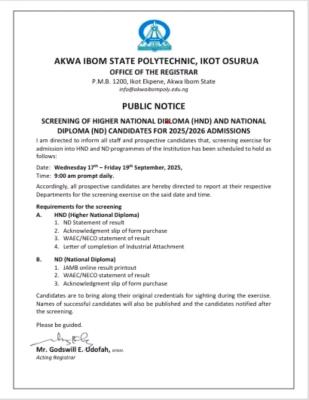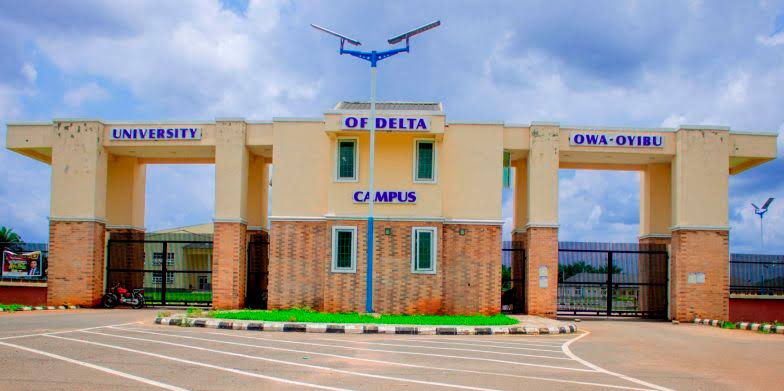For decades, Nigerian students and parents have lived under the constant fear of one dreaded word: strike. The mere mention of an Academic Staff Union of Universities (ASUU) strike often sends shivers down the spine of students, disrupts academic calendars, and extends the years many spend in school. But in what may be seen as a breath of fresh air, the Minister of State for Education, Dr. Olatunji Alausa, has reassured Nigerians that there will be no strike action by ASUU and other university-based unions.
Speaking in Abuja during the Gender Inclusion Summit, the Minister emphasized that the present administration is fully committed to ensuring that Nigerian students remain in school uninterrupted. He added that talks between the government and the unions are ongoing but are being conducted with “mutual respect” and confidentiality.
Why This Assurance Matters
The history of strikes in Nigeria’s education sector cannot be ignored. Since the 1990s, ASUU has frequently embarked on industrial actions, often lasting several months. The most recent prolonged strike in 2022 lasted over eight months, crippling academic activities and forcing students to remain at home.
These strikes usually stem from unmet demands such as:
- Improved university funding.
- Revitalization of infrastructure.
- Payment of earned allowances and salaries.
- Issues surrounding the implementation of the 2009 FG–ASUU agreement.
The direct victims are students, whose academic journeys are delayed, while parents are left frustrated. Employers and society also feel the ripple effect, as graduates often enter the workforce later than expected.
By assuring that “our children will remain in school,” the government is not just making a promise—it is sending a message of stability and hope to millions of Nigerian families.
Behind the Government’s Strategy
The Minister noted that the Federal Government’s engagement with unions is strategic and private, avoiding unnecessary media drama. According to him, some discussions are better kept within negotiation rooms rather than played out in public debates.
This approach signals a departure from previous years where confrontations between government and ASUU often spilled into the media, escalating tensions and hardening positions. By fostering an atmosphere of dialogue, respect, and mutual understanding, the government hopes to build lasting trust with the unions.
Education Reforms in Focus
Interestingly, the Minister’s reassurance on strikes came alongside another significant update—the transition of WAEC and NECO exams to Computer-Based Testing (CBT).
- Starting from November 2025, WAEC’s objective questions will be fully computer-based.
- Essay and theory sections will still remain paper-based until the full transition in 2026.
- NECO will also adopt the same gradual shift to CBT, in line with global examination standards.
This reform aims to:
- Reduce exam malpractice, which has plagued Nigeria’s education system.
- Standardize testing to meet international benchmarks.
- Improve efficiency in result processing and evaluation.
Addressing Accessibility and Inclusivity
One of the major concerns with transitioning to CBT is accessibility, especially for students in rural or underserved communities where electricity and internet connectivity are unreliable.
The Minister assured Nigerians that the government is taking this challenge seriously by:
- Providing special testing centres equipped with the necessary facilities.
- Making provisions for students with disabilities, including transportation to suitable centres.
- Ensuring no student is left behind in the digital shift.
This focus on inclusivity is crucial because it demonstrates that the government is not only introducing reforms but also working to ensure equitable access for every Nigerian child.
What This Means for Students and Parents
If the government succeeds in both keeping strikes at bay and implementing meaningful reforms, the impact will be enormous:
- Stability in Academic Calendars – Students can graduate on time, plan their careers, and compete globally.
- Boost in Confidence – Parents and guardians will trust the system more, reducing the desperation to send children abroad at all costs.
- Improved Quality of Education – With CBT exams, reduced malpractice, and better facilities, Nigeria’s education sector may finally align with 21st-century global standards.
- Greater Productivity – By avoiding frequent strikes, Nigeria will produce more graduates consistently, feeding into the labour market and national development.
The Road Ahead
While this assurance from the Minister is commendable, Nigerians are naturally cautious. Over the years, similar promises have been made, only for strikes to resurface when negotiations collapse. The success of this promise will depend on:
- Timely fulfilment of agreements reached with ASUU and other unions.
- Genuine investment in the education sector, especially in infrastructure and welfare.
- Consistent dialogue to prevent misunderstandings from escalating into industrial action.
Final Thoughts
The message from the Minister is one of hope and reassurance. For once, Nigerian students can begin to imagine an academic calendar that runs smoothly without sudden breaks. Parents can breathe a little easier, and the education sector can focus on innovation rather than crisis management.
However, Nigerians will be watching closely to see if the government truly delivers on this promise. As the saying goes, the test of the pudding is in the eating.
If this commitment holds, the era of “academic strike-induced uncertainty” may soon be over, ushering in a new dawn for Nigeria’s educational future.






